How do the Conservative and Labour manifestos compare on the big issues?
The two main parties have published details on their plans, enabling closer scrutiny of claims and counter-claims on policy.

The publication of Labour’s manifesto on Thursday marks a significant moment in the General Election campaign, with the finer details of the two main parties’ promises to the voters now available for scrutiny.
Here, the PA news agency compares the key policies of the Conservatives and Labour, and their potential implications.
– What are the plans for taxes?
With Labour’s consistent lead in the polls a key factor, there is a stark difference in the parties’ approach to taxation.
The Conservatives have focused on eye-catching tax cuts in a bid to woo voters with the prospect of increased disposable income, as it strives to re-assert its credentials as the party of low taxes amid historic highs.
Meanwhile, Labour’s tax plans are more cautious as it sticks to the safety of previous commitments, with the party knowing it still needs to challenge preconceptions and demonstrate fiscal prudence.
The Conservative manifesto promises tax cuts worth £17 billion, with the headline policy another 2p cut to the rate of national insurance.
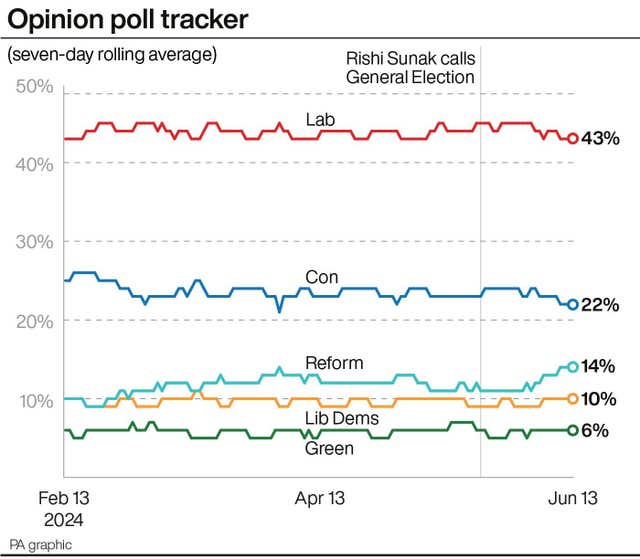
Labour has promised a “tax lock for working people”, which counters repeated and contested Tory claims that the party will raise taxes.
The lock ties Labour into no increases in income tax, national insurance or VAT, but the manifesto does not rule out other types of tax hikes.
The party has also promised to cap corporation tax at 25% – the lowest level in the G7 – as it seeks to affirm its pro-businesses credentials.
– What are their biggest spending pledges?
The Conservatives have proposed a national service scheme, 100,000 new apprenticeships and to increase defence spending to 2.5% of GDP.
Its changes to child benefit would result in well-off parents continuing to receive full child benefit until total household income hits £120,000 a year.
The Conservatives say its planned extra spending overall would amount to £1 billion in the next Parliament.
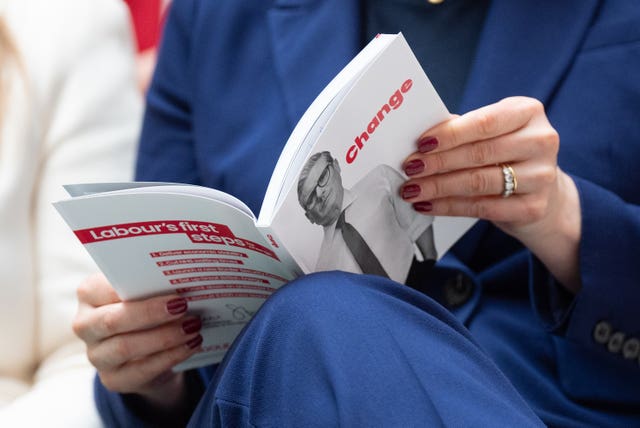
Labour’s green prosperity plan aims to decarbonise the electricity grid by 2030, though it has been scaled back dramatically from the party’s original promise to spend £28 billion a year.
The manifesto states the cost of the plan will be an annual average of £4.7 billion by 2028-29, including 3.7 billion a year in capital borrowing.
– How do the parties plan to cover the costs of their spending plans?
The big Tory revenue raisers are a clampdown on tax evasion and welfare reforms.
The evasion plan is projected to raise £6 billion, while welfare reform, which includes tightening the work capability assessment from September 2025, is expected to raise £12 billion.
Labour has said taxes for working people will not need to rise and spending will not be cut to meet its fiscal rules, with the party relying heavily on its plan for economic growth to generate extra revenue.
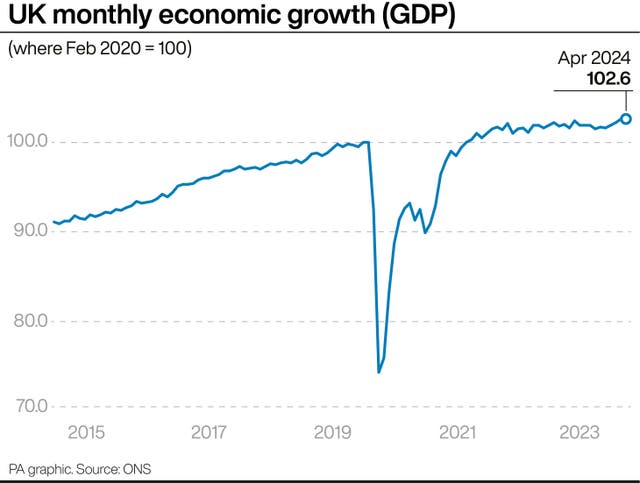
The party has pledged to cover spending plans by ending tax breaks for private schools and closing loopholes which allow some people with “non-dom” status who live in the UK to avoid paying tax.
Labour has also said it would introduce a “proper” windfall tax on the profits of energy giants.
The manifesto confirms measures Labour said will raise £8 billion.
– What are the potential problems with these plans?
The Conservatives’ plan for welfare savings has been described by the Institute for Fiscal Studies (IFS) as “difficult in the extreme”, with the target to halve the number of people claiming disability benefits set to result in many people losing significant sums of money.
Public finance experts have also highlighted that the Tory manifesto does not address the issue of funding for unprotected Whitehall departments.
Some estimates predict that under current spending plans, departments would collectively take cuts of up to £20 billion by the end of the next Parliament.
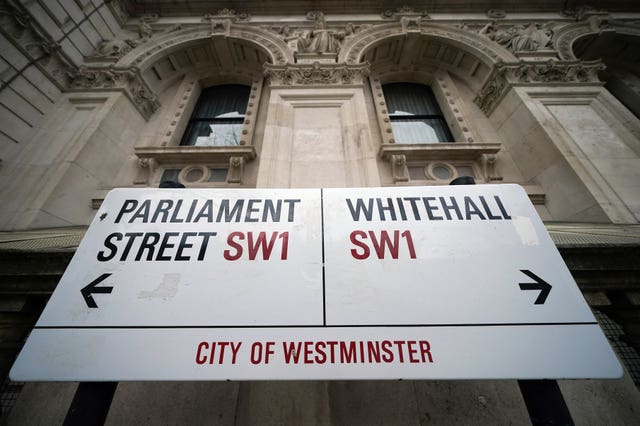
There are concerns this is not achievable, raising the likelihood that budgets will need to be topped-up, potentially to the tune of billions of pounds, putting Tory figures in doubt.
Labour has also been criticised for a lack of action on key public services.
The party said it will provide an estimated £1.4 billion in annual departmental funding, but this is also likely to fall short of what public finance experts say is necessary to avoid frontline services being hit further.
The IFS described Labour’s funding pledge as “tiny, going on trivial”, adding the party is offering “almost nothing” despite “diagnosing deep-seated problems”.
– What are the pledges on the NHS and social care?
The Conservatives have pledged to stick with the longstanding convention of increasing annual spending on the NHS above inflation, but there are questions over other health-related plans.
A promise to restore NHS performance to constitutional targets and re-commit to implementing a long-term workforce plan are expected to cost more than would be covered by the level of annual increases in NHS funding seen in recent years.
There was also very limited detail about the scale of dedicated investment that would be available to the NHS to deliver these goals.
The party has committed to introducing the delayed £86,000 cap on lifetime social care costs, but no funding has been committed for this, raising the prospect of further cuts elsewhere.

Amid widespread concern about the performance of the NHS, Labour has promised action as one of its six “first steps”.
The party said it expects to hit an extra 40,000 NHS appointments per week within its first year in government and has promised to double the number of NHS CT and MRI scanners.
Labour has also pledged to hit the 18-week NHS waiting time target, which is treating at least 92% of NHS patients within 18 weeks of referral, within five years.
In addition, Labour has pledged 100,000 more “urgent and emergency” dental appointments for children each year.
The party has re-affirmed its commitment to creating a national care service, but it is currently unclear how and when this will be achieved.
– What are the parties promising on migration?
Under pressure from the Tory right on the issue, the Conservatives have promised a “relentless” process of migrant removals to Rwanda until small boat crossings end.
However, it has stopped short of pledging a withdrawal from the European Convention on Human Rights, which has proved a stumbling block to efforts to begin deportations.
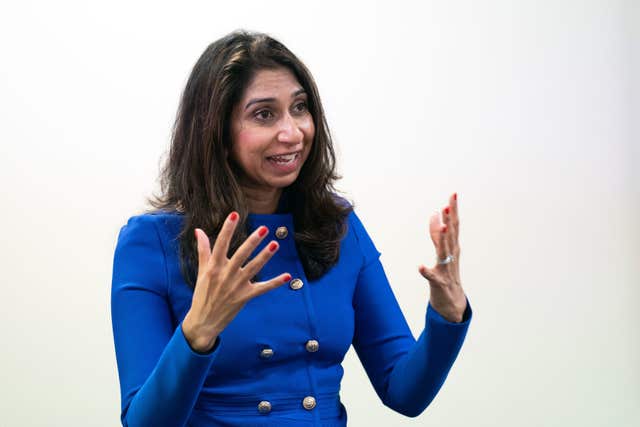
The manifesto also pledges to clear the backlog of asylum applications in six months.
With immigration high on many voters’ list of priorities, Labour is keen to challenge Tory claims of being soft on the issue.
It has promised to clear the asylum backlog by increasing caseworkers, and establishing a new “returns and enforcement unit”.
The party also said it will end the use of hotels for asylum accommodation and, as an alternative to the Rwanda scheme, boost border security to tackle the criminal gangs behind small boat crossings.
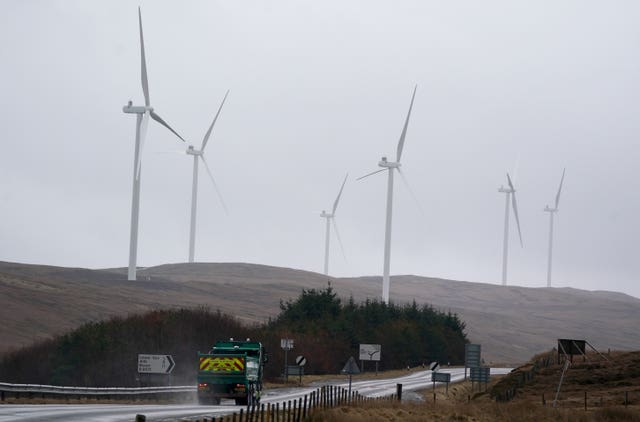
– What about climate change?
The Conservatives’ approach to climate change is seen as less enthusiastic than it has been previously amid concerns over energy security and push-back from Tory backbenchers.
The manifesto reiterates the party remains committed to net-zero reduction targets, but said it would not increase costs for consumers.
As previously mentioned, Labour has an ambition to decarbonise electricity production by 2030 and a plan to boost green enterprise.
The party says decarbonisation will bring household bills down, contrary to claims by some Conservatives.
Most experts say decarbonisation is likely to cut costs in the long-term as the UK is weaned off its reliance on imported gas and oil, which are vulnerable to price volatility.





